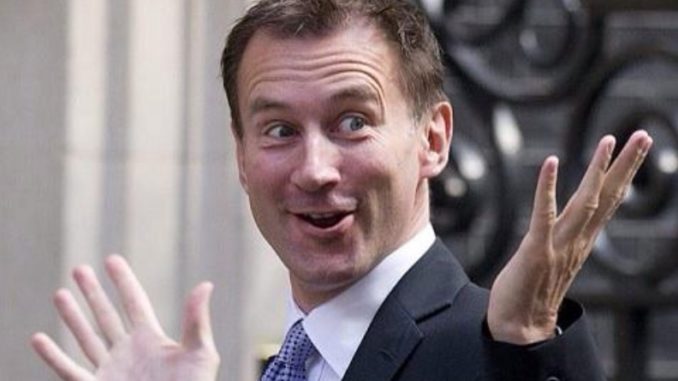
NHS England and NHS Improvement appear to be whistling in the dark as they ignore the warnings from professional bodies and NHS Providers that the levels of NHS underfunding and staff shortages are increasingly dangerous.
Despite experiencing the worst winter in a decade, frontline NHS staff and managers have risen to the challenge and cared for more patients than ever before. However, this surge in demand has affected the NHS’s performance in key areas, such as waiting times and its reliance on temporary workers. (Press release 31 May)
The winter was the worst in many years for NHS performance, but not the worst in terms of influenza or weather: the pressures on services have grown with the population and demographics, but the promised changes to divert patients away from hospitals have not materialised.
Their latest join statement accompanies the Quarter 4 reporting (Quarterly performance of the NHS provider sector: quarter 4 2017/18) and in it they admit that the deficits of hospital trusts have almost doubled since last year as they struggle with inadequate funding to deal with increased attendances at A&E and emergency admissions. Yet the overall figures appear less serious because of “underspending” in the community services which are supposed to be key to reducing the pressure on A&E.
Reporting the HSJ, Lawrence Dunhill exposes just how ‘economical with the truth’ the partial reporting is. In his article ‘Trusts draw down £3bn in cash bailouts‘ (30 May 2018) he pinpoints the wider reality exposing the catastrophic level of deliberate underfunding of the health service. He lists three key truths:
- £2.81bn paid out to trusts as “working capital loans” in 2017-18 – a small increase on the previous year
- Figures reflect the fact dozens of trusts are struggling to maintain adequate cash levels due to their recurring income and expenditure deficits
- Cash bailout totals contrast with reported deficit for the provider sector
There are no figures in the press release for primary care, which is also failing to secure the growing resources it needs to take a growing workload and assist in reducing demand on hospitals.
The figures are also prettied up by “underspending” in mental health services despite widespread serious shortages of frontline beds and services, repeated empty promises to increase nursing staff, and the pledges to increase mental health budgets.
The high officially recognised level of staff vacancies (93,000) is close to unofficial estimates of 100,000, and the 36,000 nursing vacancies are also a confirmation that unofficial estimates of 40,000 were close to the mark: these shortages, plus almost 10,000 doctors underline the constant stress on frontline staff – meaning that there is no stability in the high levels of “productivity” boasted about by NHS England.
Staff in many trusts are constantly on the brink of a Mid Staffordshire-style crisis. The £976 million spent on bank staff to fill these vacancies is almost equal to the trusts’ deficit.
As NHS Providers and professional bodies keep reminding us, it is irresponsible to keep running services on this level of pressure, risking burnout and avoidable errors by hard-pressed staff.
The problem is not restricted to hospital trusts: the NHS England Board paper notes that Clinical Commissioning Groups are running an overspend of £761m for last year – indicating even more severe pressure on providers and more efforts to restrict services to hold down commissioning budgets.
While the figures confirm the dedication of staff, the superhuman efforts being made to keep under-funded services going, and the remarkable effort to reach performance targets, they tell us above all that after 8 years of virtually frozen real terms funding, trust deficits are only being concealed by “Provider Sustainability Funds” and CCGs are now to be bailed out with a new “Commissioner Sustainability Fund” – both of which drain already limited capital resources, and simply conceal the underlying problem.
Ministers are in denial on the impact of their unprecedented cash squeeze: NHS England, far from standing up for the NHS and demanding adequate funding, is covering up for ministers and undermining efforts to secure additional funding.

Join us in London on 30 June with Health Campaigns Together, The People’s Assembly, the TUC and 14 unions to celebrate the 70th birthday of the NHS and yet to protest about the unforgivable and damaging government policy to undermine it.
John Lister, Co-chair KONP and Editor of Health Campaigns Together paper, founder of London Health Emergency

Leave a Reply